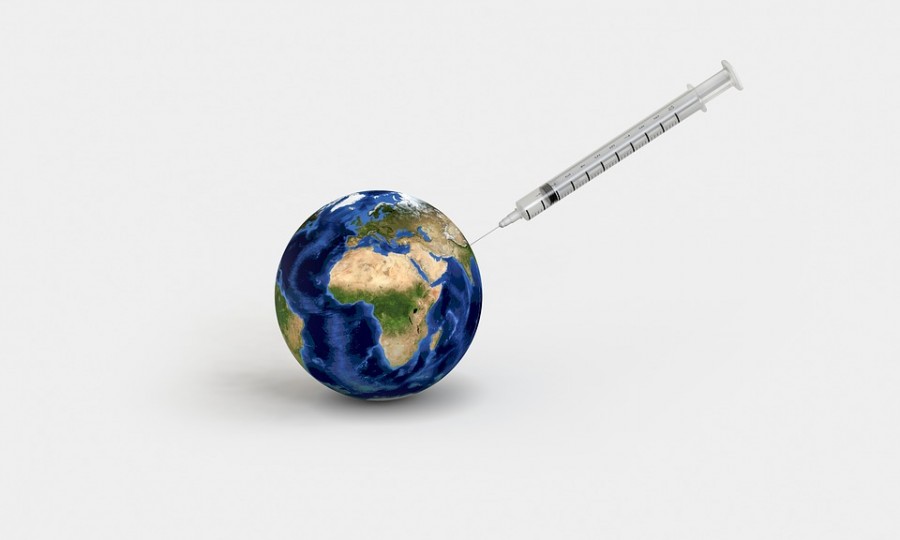June 6, 2017
Angela Romero
For the month of June we’re going to check in with your health. Our innate connection to nature extends to the cycles that it experiences every season. Winter is a time for rest, recharge and internalisation. If we try to keep at pace throughout this time without taking the due rest, the body overrides and forces us to do so by making us sick.
So this week’s mind blog is all about doing an overall health check. The World Health Organisation describes good mental health as: ‘a state of wellbeing in which the individual realises his or her own abilities, can cope with the normal stresses of life, can work productively and fruitfully, and is able to make a contribution to his or her community’. Here at EBM, we don’t think it’s good enough to just coast through life feeling lethargic and overwhelmed. We want you to be feeling 100% as much of the time as possible!
Below we explore some of the ways to assess the state of your health, and how to allow self-reflection during this time.
Stress Test
Whenever we run corporate wellness workshops, the question of “who is stressed?” never fails to raise a majority of hands. Stress is now more than ever a daily part of life, and it is causing all sorts of havoc in our bodies (read more HERE).
Testing your level of stress can be important for beginning to understand the triggers of your stress and thus ways to mitigate it. The Perceived Stress Scale (PSS) is the most widely used psychological instrument for measuring the perception of stress. It helps to determine what degree certain situations are considered to be stressful for each person.
Some example questions include:
“In the last month, how often have you felt that you were on top of things?”
“In the last month, how often have you felt difficulties were piling up so high that you could not overcome them?”
“In the last month, how often have you felt that things were going your way?”
Being open and honest with your answers not only allows you to identify your own pain-points, but carves the path to a solution much more clearly.
If you’re interested in learning more about your levels of stress, you can take the short survey HERE.
Sleep Test
We talk about sleep a lot, only because it’s so important to how we feel overall. Research tells us that we all need between 7-9 hours of sleep a night (yes even if you’re superman/woman).
So the first part of the sleep test is to identify how many nights on an average week you would achieve those 7-9 hours. If it is more than 4, that is classified as a passing. If it is less, then techniques can be applied to help you achieve this.
But we also want the QUALITY of the sleep to be as good as the quantity. The second part of the test is how many times you wake up during the night. If it’s more than zero (yes that’s right!) then it’s important to look at what is triggering these wakeups and work on reducing them.
Drink Test
We’ve spoken on the importance of hydration before, but this test is also two pronged. The first part is to take stock of the amount of water that you’re drinking everyday, and get that number up to 2L a day (to learn techniques on HOW click here).
The second part is to identify the number of alcoholic beverages per week. Research says 1-2 per day is ok, but many people often mistaken this to mean you can cumulate them and use all of your numbers on the weekend. It’s also good to have some alcohol free days as well. Alcohol also affects your hydration levels, so even one drink means you need to up your water intake significantly.
Solution: Mindfulness and Meditation
Having a health check is a great way to gain a snapshot into your current health situation, but where to from there? Many health coaches do health checks, only to then leave clients high and dry for the solutions to the problems that have been identified.
As this month is focusing on the mind, the solution we are focusing on is practising mindfulness and meditation. With Winter signalling a time for turning inwards, this is one of the BEST times to learn or deepen your meditation practice (you can learn HOW to here).
Doing daily check-ins with yourself to see what has stressed you and turn that around by focusing on what you’re grateful for will cumulate into positive changes to your daily mindset. A great mindfulness exercise is to spend a few minutes at the end of each day writing down three things you are grateful for. Even the smallest things can make the day worthwhile when focusing on them.
In next week’s body blog we’ll be talking about a fitness assessment, so tune in to see how you stack up!
You know that feeling when you exercise after drinking a lot of water? Your body almost feels like its insides are sloshing around. Considering our bodies are made up of 60-75% water, this may not be too far from the truth!
When body cells are deprived of water, they begin to react differently. The symptoms we begin to see on the surface range from headaches, body aches to digestive problems, and can be much more serious in cases of acute dehydration.
Many think that drinking any form of liquid will cure not only that thirst, but also the dehydration. Unfortunately, many of our favourite beverages are causing this dehydration because they contain a diarrhetic. Coffee, tea, soft drinks, alcohol, and energy drinks all have dehydrating elements which cause the goal of hydration to be harder to achieve.
While the ‘accepted standard’ is to drink 2L a day, bio-individuality more importantly dictates we listen to our bodies needs and strive to achieve hydration satiety according to our differences. Age, activity levels, your diet, the climate and health issues all contribute to your water needs.
As a start though, it may be worth experimenting with attempting to have 2L a day for one month, and seeing how the body reacts. Upping our water consumption has been dubbed one of the best ways to create positive changes within the body. It also allows us to ‘crowd out’ the more dehydrating or unhealthy drinks from our day, as it’s hard to drink much else when you’re downing that much water!
Below are some of the best tips for upping your water intake and improving the quality of that water:
#1 Buy a bottle: Investing in a 1L glass bottle and setting the goal of two bottles a day makes water hydration a game. Challenge your colleagues and friends to a 2L challenge, and keep each other accountable.
#2 Make it a ritual: Create the habit of having one glass of water first thing every morning. Set an alarm, put your favourite glass on your kitchen bench, have it at the bedroom door so you’ll have to trip over it to get out. Hydrating first thing in the morning sets you up for a more energised day. Plus, there’s a little something you can do to spruce your water up which relates to the next tip…
#3 Spice it up: Adding lemon to your water first thing in the morning has proven scientific benefits for hydration, detoxification and digestive aid. If you’re feeling adventurous, try adding some turmeric and cayenne pepper to the mix for a real cleanse!
#4 Which type counts: tap water is perfectly fine (as long as you’re in a safe area) just make sure it is fresh and not left out overnight. Bottled water is also ok, but many have concerns when the bottle is plastic rather than glass. Water filters are becoming more popular, and are a good way to remove contaminants. The jury is still out on the proven benefits of alkaline water – some people swear by it and others say it’s not the way our bodies are made to drink water.
#5 Don’t give up: You will often find the first week or so in the attempt to up your water intake quite uncomfortable. Your bathroom visits will up the anti, your skin may break out as it flushes out the toxins, and you may feel more bloated than usual. This is all completely normal, but after the first 5-7 days these things should settle, and you should start to feel the benefits of the increased hydration.
Today is always the best day to start – what are you waiting for? Committing to improving your hydration will have amazing impacts on your overall health. Tag us in your water posts @energybodymind on Instagram or Facebook to show the ways you keep hydrated.

